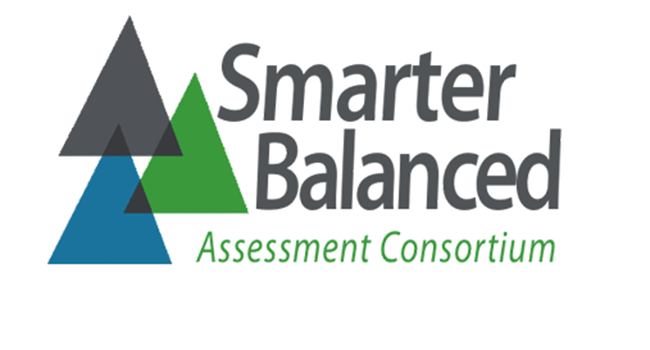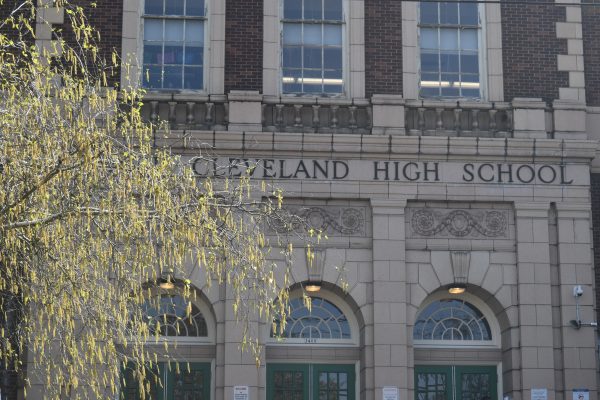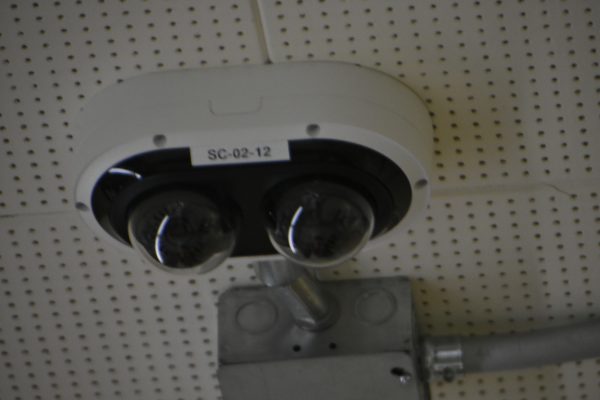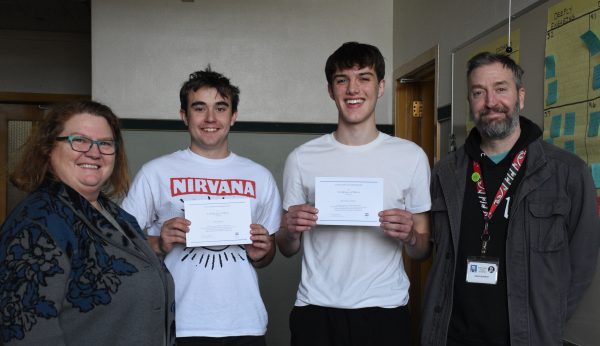Cleveland abuzz with debate on SBAC tests
Cleveland hallways have been buzzing with new information and passionate debates about an extremely controversial topic: Common Core. Otherwise known as Smart Balance (SBAC) tests, Common Core State Standards is a newly-implemented curriculum and assessment for students nationwide that tests students in literacy, math, and writing. These exams are a graduate requirement for juniors and replace previously used OAKS testing.
Many students are expressing their resentment for SBAC by opting out of the exam. Some dislike the amount of time and money that is estimated to go towards these tests, while others are taking a stance against standardized testing in general.
The opt out forms were originally due on Wednesday April 1—a Cleveland-specific deadline—but the deadline is now extended. Students are able to turn in forms up to the day of the test.
Around 20 students have turned in their opt-out forms so far, but Vice Principal Kevin Taylor said the forms are still trickling in. Those who opt-out will need to show they meet the essential skills by completing work samples during time of the test.
Marley Schlichting, the leader of Portland Student Union, was one of several students to opt out.
“I don’t like the idea of having a high-stakes test like this implemented across the country and legally required for every high school student in the U.S. because schools have access to different education and resources,” Schlichting said. “Funding should be going towards things that directly impact students rather than a test that’s simply a hoop to jump through.”
Schlichting and other members of Student Union provided a letter to parents and guardians detailing Student Union’s opinions regarding SBAC. Included in the packet was information about the expected length and cost of the test and the percentage of students who are projected to not pass the standards, among other statistics.
“We wanted to provide information so students could make an informed decision about if they wanted to take it,” said Schlichting.
Elise Hodge, junior, also turned in an opt-out form and has many issues with the test.
“My main issue with SBAC is that it’s a representation of the continuity of a system that I don’t agree with,” Hodge said. “I would like to see a more individualized approach on evaluating learning. To me it comes down to respecting the individuality of a student.”
“There is so much more to me than my grade on a standardized test. I don’t think they truly represent everything that I know and that I’m proud of knowing,” Siana Ramos, junior, said.
However, many other students, teachers, and administrators have contrasting viewpoints.
“While testing costs a lot of money, puts pressure on students, can be emotionally stressful, and takes up class time, the way in which the system has been set up forces us to continue testing,” Anya DeCarlo, senior, said.
“I think everyone should take the test because it sets a benchmark for students to meet and connects education nationwide,” Hana Warmflash, junior, said.
“People must first be equipped with basic educational skills and I believe standardized tests can help regulate if people are meeting these benchmarks,” junior Ben Klatchko said. “I’m against other people opting out because if we don’t collect sufficient data on these tests, we won’t have a holistic representation of all students’ scores so we won’t know if this is a good standard.”
There is also a concern on the legitimacy behind opt-outs.
“People are declaring that they have religious reasons that prohibit them from taking a standardized test, yet many of them have taken the PSAT, will take the ACT and are taking IB tests, which are all standardized tests,” Jan Watt, special projects coordinator, said.
Hodge thinks a solution to that could be an additional exemption option called “conscientious objector” that would account for moral reasons. “The fact that there isn’t an option like that is disheartening,” she said. “They don’t want to admit there is a flaw in the system.”
Specifically for Cleveland, many administrators worry the school’s representation and rating on the state report card will plunge if less than 95 percent of students take the exams.
“I work very hard, along with every other member of this faculty, to maintain the academic integrity of this institution,” said Watt. “The reality is if we slip in a public way, it’s going to have an impact.”
“I’m really proud of the work we’ve done here at Cleveland and I don’t think an unsatisfactory rating would reflect the excellence of the programs here, but that is what the public sees,” Taylor said.
Taylor worries that if fewer students have a desire to go to Cleveland, our funding will be negatively affected. “Teacher funding is all based on student numbers. If our student numbers drop, we’ll be in a cut mode [for teachers].
Some students are concerned that a lower ranking will negatively affect their chances of getting into selective colleges but nearly all administrators don’t think that will be the case.
“I don’t anticipate a college rejecting a student because of the school rating,” John Golden, instructional specialist, said.
“Colleges are surely hearing the dissatisfaction and upset countrywide,’ Watt said. “It’s not a pleasant situation for anybody to be in…I hate to see this much angst about something that the school has truly no control over.”

Grade:
Senior
Favorite food:
Sushi
Favorite movie:
The Internship
Favorite Artist/Album:
The Shins













